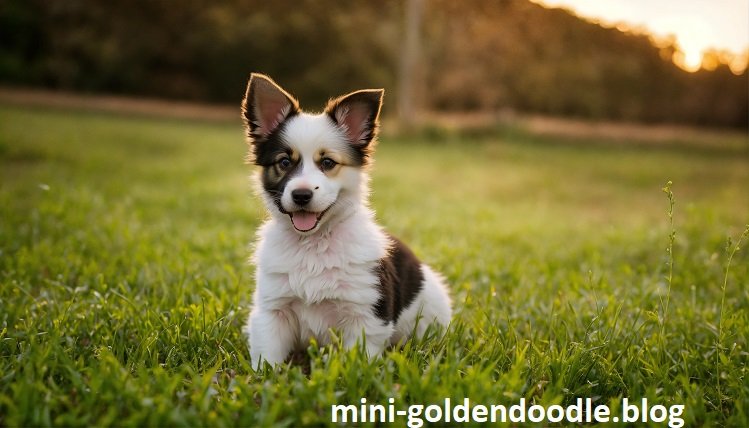Introduction
One of the most well-liked dog breeds in the world, labrador puppy Labrador Retrievers are known for their intelligence, adaptability, and amiable nature. They are also sometimes referred to as Labs or just Labs. In particular, labrador labrador puppy pups are charming bundles of curiosity and enthusiasm that win people over everywhere they go. This in-depth manual will teach you all the information you need to raise a happy, healthy, and well-mannered dog, regardless of whether you’re thinking about getting a Labrador puppy or already own one.
History and Origin of Labrador Retrievers
Originating in Newfoundland, Canada, labrador retrievers have a long history. Their purpose was to help fisherman retrieve fish and nets from the chilly waters. Both the Newfoundland and the St. John’s water dogs, which were popular in the 19th century, had an effect on their background. Because of their gentle mouths and remarkable swimming skills, Labradors became quite popular as family pets and working dogs. Their pleasant nature also contributed to their popularity.
Characteristics and Appearance
Labrador puppies are distinguished by their short coat, robust physique, and amiable demeanor. Their wide heads and expressive eyes usually reflect their want to please and intelligence. They can survive in a variety of climatic conditions thanks to their thick, water-resistant coat. Additionally, labradors have a characteristic otter-like tail that helps with balance and agility, particularly when swimming. These characteristics, along with their amiable disposition, make them one of the most popular dog breeds in the world.
Choosing the Right Labrador Puppy
Examining traits including temperament, medical history, and breeder reputation is crucial when selecting a Labrador puppy. Seek for puppies that are not unduly shy or aggressive, but rather alert, curious, and confident. In addition to providing health clearances for hereditary disorders like hip dysplasia, ethical breeders will also provide information about the puppy’s background and medical history. Making the effort to choose a trustworthy breeder and a well-socialized puppy lays the groundwork for a happy and companionable lifetime relationship.
Bringing Your Labrador Puppy Home
Taking a Labrador puppy home is an exciting but crucial event that needs to be planned carefully. By puppy-proofing your house and getting rid of potential hazards like poisonous plants and small objects that could be swallowed, you can create a secure and hospitable atmosphere. Make sure you have all the necessities on hand, including as a crate, bedding, bowls for food and water, chew toys, and grooming equipment.
Feeding and Nutrition
For Labrador puppies to grow and develop properly, they must be fed properly. Make sure the puppy food you choose is of the highest caliber and designed specifically for giant breeds, as this will support their growth and energy needs. Feed your puppy in accordance with recommended amounts based on their size, age, and degree of activity; as they become bigger, alter the amounts.
Training and Socialization
An appropriately socialized and trained Labrador puppy will grow up to be a well-mannered and well-adjusted adult. Using positive reinforcement strategies like praise and rewards, begin with fundamental obedience commands like sit, remain, and come. To help your puppy develop confidence and avoid fear or violence later in life, socialize them with a variety of people, animals, and settings. You and your Labrador puppy can develop a solid relationship based on mutual respect and trust by being consistent, patient, and gentle with each other.
Exercise and Playtime
Because they are active and playful, labrador pups need to be exercised frequently to maintain good health. To keep their mind and body busy, incorporate regular activities like walks, playdates, and interactive games like tug-of-war or fetch. To preserve their growing joints, stay away from excessive high-impact activities, especially while they are still developing. Use mentally stimulating activities to keep your puppy from getting bored, such as puzzle toys or training sessions. This will help to ensure that your puppy grows up to be a well-rounded and happy dog.
Grooming and Care
Despite having a short coat that requires little care, Labrador Retrievers do experience some shedding throughout the year. To avoid matting and remove stray hair, give your puppy’s coat a weekly brushing, being especially careful during shedding seasons. They should frequently brush their teeth to maintain dental hygiene, clean their ears to prevent infections, and trim their nails to avoid overgrowth and discomfort.
Health and Veterinary Care
In order to keep an eye on your Labrador puppy’s health and make sure they receive the required shots and preventive care, it’s imperative that you schedule routine veterinary visits. Consult your veterinarian about a vaccination program to guard against parvovirus and distemper. Keep an eye out for symptoms of common Labrador health problems, like as obesity, elbow dysplasia, and hip dysplasia, and collaborate with your veterinarian to create a preventive care schedule specific to your puppy’s requirements.
Common Behavioral Traits
Because of their gregarious and extroverted personality, labrador retrievers are great companions for both individuals and families. They usually get along well with kids and other animals, which is indicative of their kind disposition and outgoing style. To develop these natural qualities and help them grow up to be well-mannered people, early socialization and positive reinforcement training are crucial.
Conclusion
Having a Labrador puppy in your home may be a fulfilling experience that is full of joy, love, and company. You can provide your puppy the greatest care and upbringing possible if you are aware of their background, traits, and special needs. The secret to success, whether you’re a first-time puppy parent or hoping to strengthen your relationship with an already-formed Labrador, is patience, consistency, and a whole lot of tail-wagging joy.
FAQ
How long do Labrador puppies stay puppies?
Until they are between 12 and 18 months old, depending on their unique growth and development, labrador puppies are regarded as puppies.
Are Labrador puppies good with children?
Yes, when properly socialized and trained, Labrador puppies make ideal family companions since they are typically gentle and understanding toward children.

